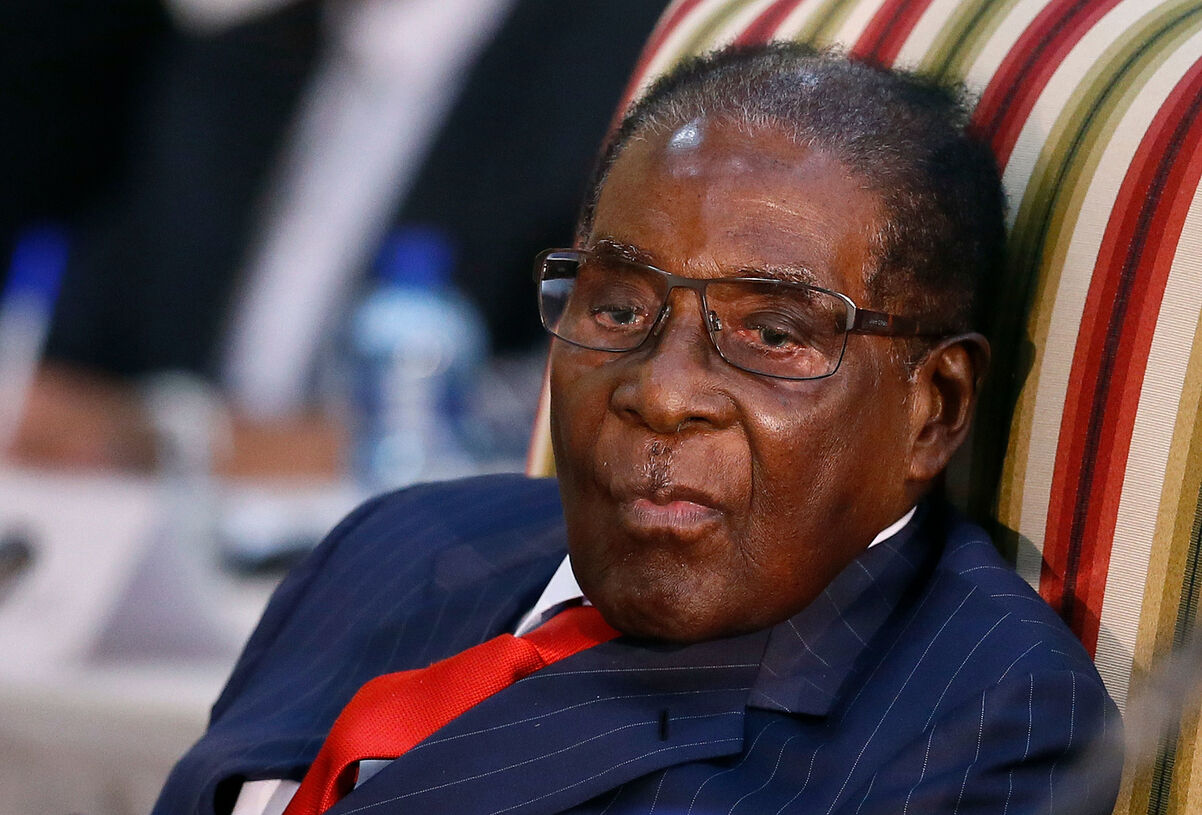One of Africa’s most brutal anti-gay dictators has stepped down following threats of a military coup after being ousted as the leader of his party.
Zimbabwe president Robert Mugabe tendered his resignation in a formal letter to the country’s Parliament on Monday, according to speaker Jacob Mudenda. Since taking power in 1980, the 93-year-old leader has been an outspoken critic of LGBTQ rights in a country where same-sex relationships are punishable by up to three years in prison.
Mugabe, who has referred to LGBTQ people as “unnatural” and compared them to “pigs” and “dogs,” believes that Zimbabwe should behead its queer population. He claimed in a 2013 address at the Aerodrome Grounds in Mutare that the country should round up gay men, lock them in a house together, and force them to produce a child. If the two cannot do so, authorities should “chop off their heads.”
He further claimed that homosexuality “seeks to destroy our lineage by saying John and John should wed, Maria and Maria should wed.”
But the despot has a history of making violent and threatening statements about the LGBTQ community that stretches as long as his nearly four-decade regime. Mugabe has claimed that homosexuality “destroys nations,” calling it a “filthy, filthy disease” which “degrades human dignity.” The nonagenarian also claimed that queer and trans people “should rot in jail” during a 2013 speech delivered in the city of Masvingo.
Mugabe, who has favorably compared himself to Adolf Hitler, also claimed that Zimbabwe would turn down foreign aid from the Obama administration if the assistance would mean the country would be forced to accept same-sex marriages.
“We don’t want it,” the president said last year. “It is rotten aid, filthy aid, and we won’t have anything to do with it.”
The embattled tyrant’s resignation came as something of a surprise afterdelivering a rambling televised address on Sundayin which Mugabe promised he would be staying put. He pledged to “return our nation to normalcy so that all our people can go about their business unhindered, in an environment of perfect peace and security.”
But the status quo was no longer an option for Mugabe after a controversial dismissal of Vice President Emmerson Mnangagwa led to widespread backlash among party members last month.
Mnangagwa’s firing was intended to pave the way for Mugabe’s wife, Grace, to take his position, but instead, members of the Zimbabwe African National Union-Patriotic Front (ZANU-PF) voted to depose Mugabe and his wife from party leadership, effectively stripping the president of his powers. Military leaders simultaneously placed the autocrat under house arrest, giving him few remaining allies and even fewer options.
Former ZANU-PF party member Chris Mutsvangwa said that if Mugabe didn’t abdicate, violent mobs would remove him instead: “We will bring back the crowds and they will do their business.”
Amidst joyful celebrations in the streets of the capital city of Harare, LGBTQ activists see Mugabe’s removal as a ray of hope in a nation where being queer or transgender is extremely difficult. Zimbabwehas its own Russian-style anti-gay propaganda law, known as the Censorship and Entertainments Control Act. Passed in 1967, it forbids the spread of information that is “offensive or harmful to public morals or is likely to be contrary to public health.”
The prohibition on sodomywas expanded under the Mugabe regimein 2006 to include acts which “would be regarded by a reasonable person as indecent.” That could include any form of LGBTQ intimacylike kissing, hugging, or holding hands.
Gays and Lesbians of Zimbabwe (GALZ), an LGBTQ community center located in Harare, claimed the group is “ecstatic” at the news of Mugabe’s removal.
“GALZ receives the news of the resignation of Robert Mugabe with much jubilation,” the advocacy organization said in a press release. “Since 1995, GALZ has been on the receiving end of the brutality and hate of Robert Mugabe’s aversion to diversity. We are ecstatic that the face of brutality, hate, and impunity has resigned.”
U.K. Prime Minister Theresa May added that Mugabe’s ouster “provides Zimbabwe with an opportunity to forge a new path free of the oppression that characterized his rule.”
(Photo Credit: PHILL MAGAKOE/AFP/Getty Images)

Don't forget to share:
Help make sure LGBTQ+ stories are being told...
We can't rely on mainstream media to tell our stories. That's why we don't lock our articles behind a paywall. Will you support our mission with a contribution today?
Cancel anytime · Proudly LGBTQ+ owned and operated
Read More in Impact
The Latest on INTO
Subscribe to get a twice-weekly dose of queer news, updates, and insights from the INTO team.
in Your Inbox













